Burkina Faso
Agenda for Change members working on systems approaches
Please note this is a summary of information. You can learn more on the CRS, Helvetas, IRC, and WaterAid websites.
Catholic Relief Services (CRS) works with the government, local partners, and other members of civil society to address challenges in schools focusing on water, sanitation, and hygiene as three components of their Kom-Yilma project.
Helvetas works in the Gnagna province of Burkina Faso by building latrines and drinking water systems, especially in schools and hospitals. Through their work in schools, they educate schoolchildren about hygiene practices such as hand washing and learn how to become “health ambassadors” in their families.
Since 2018, IRC has been supporting the Banfora town hall in the implementation of its strategic plan through technical assistance aimed at institutional development, mobilization, coordination of partners, and the development of an innovative model for managing WASH services. The Office National de l’Eau et de l’Assainissement (ONEA) is a strategic player in IRC’s support to Banfora town council because it not only has the expertise for the development of WASH services but also represents the most important channel for financing WASH investments.
WaterAid’s priority in Burkina Faso involves actively working to influence the government to consider and defend the interests of the most vulnerable.WaterAid Burkina Faso operates using the position of a change catalyst in the water and sanitation sector at national level, and works to be recognized as an organisation inspiring other sectors through its innovations and influences upon policy.
Systems strengthening activities
In Burkina Faso, CRS works with the government, local partners and other members of civil society to address challenges in schools focusing on water, sanitation, and hygiene as three components of their Kom-Yilma project. The Kom-Yilma program from CRS worked in 118 schools in Bam and Sanmatenga provinces. The program encouraged the adoption of key hygiene practices by the teachers and students and facilitated access to water and sanitation by building boreholes and culturally appropriate latrines. The Kom-Yilma project focused on community accountability to empower and involve local communities. The project also included hygiene-based training for teachers and parent associations at local schools.
Since 2016, Helvetas has collaborated with town halls and local organizations in the municipalities of Manni and Coalla to help improve the health and quality of life of the population. Helvetas’ LAAFIA project promotes good hygiene and family-level sanitation by working in schools and within communities at large. Using the Community-led Total Sanitation (CLTS) process, Helvetas helps to teach communities about environmental and communal health related to sanitation. This process is supported by village sanitation committees, with representatives from different factions of each village.
IRC Burkina Faso works at the national level to advocate for WASH as a political and financial priority, specifically referencing the need for strong systems. IRC’s primary partner district is Banfora, but since 2020, IRC has started technical assistance to 5 new local governments (Tenkodogo, Pouytenga, Koudougou, Leo, and Po) to develop their WASH 2030 strategic plans in close collaboration with ONEA. Based on these strategic plans, these communes will be able to benefit from the same technical assistance model developed for the commune of Banfora. More broadly, IRC has been supporting 93 communes in the Centre-East, Centre-South, Centre-West and Centre regions to strengthen communal WASH governance systems through the training of communal technical agents, the implementation of planning, monitoring, and reporting tools for WASH performance and the improvement of municipal supervision of the delegated drinking water utilities.
To achieve universal access to water and sanitation by 2030, WaterAid Burkina Faso plans to coordinate work with all sector stakeholders and partners around four strategic objectives: influencing policies and stakeholders to focus on the poorest and most marginalized people, developing integrated hygiene behavior change to optimize health impacts related to WASH work, developing innovative approaches and technologies to accelerate universal access to WASH and contributing to improving the sector governance overall.
Other partners
Entities of the Central Government
Ministry of Agriculture and Irrigation, Ministry of Water and Sanitation, Ministry of Women and Family Affairs, Humanitarian Response, and National Unity
Local Governments
District, Municipal, and Commune Authorities
All others
Conrad N. Hilton Foundation, Centre of Water Professions, UNICEF, Réseau des Parlementaires pour l’Eau, l’Hygiene et l’Assainissement (REPHA), Cadre de Concertation des Acteurs de l’Eau et l’Assainnissement (Forum for Policy Dialogue on WASH), Office National de l’Eau et de l’Assainissement (ONEA)
Accomplishments
- The president of Burkina Faso committed to “zero burden for water collection and a healthy living environment by 2020” at the end of 2016. Additionally, there were budgets and national programmes created for achieving SDGs 6.1 and 6.2.
- IRC supported three local governments in 2017 to develop strategic WASH plans for 2030: Banfora, Beregadougou, and Niangoloko.
- In the Commune of Pabré, in the Kadiogo province, local WASH authorities committed to the process and funding of a water supply system and latrines, with a budget of 2 billion West African Francs.
Challenges
- The WASH sector faces a lack of financing (findings from IRC’s TrackFin study in 2017 showed that barely a third of sector programmes are financed).
- Performance indicators indicating access rates are still inherited from the MDGs despite the adoption of the SDGs.
- Social accountability for water and sanitation was very unstructured and ineffective – most of the WASH NGOs are specializing in technical assistance to government while civil society organizations active in social accountability (human rights, democracy, etc.) don’t have WASH on their agenda.
How strong are the systems?
To determine how well systems are working, we rely on data derived from Building Blocks, which are manageable ‘sub-systems’ that can be supported and strengthened. Certain building blocks may be more strongly developed or applied at district or national level. Interactions between building blocks are essential.
National level
Building Block
Water
Sanitation
Hygiene
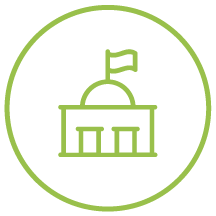
Institutional Arrangements & Coordination
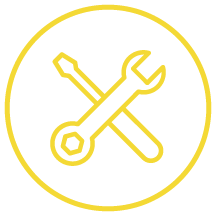
Service Delivery Infrastructure
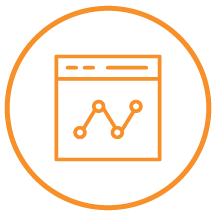
Monitoring

Planning
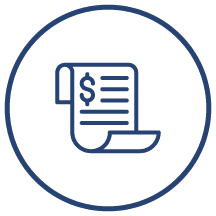
Finance
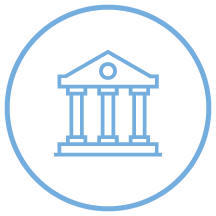
Regulation & Accountability
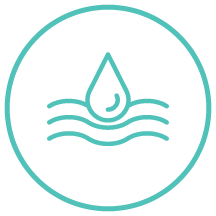
Water Resource Management
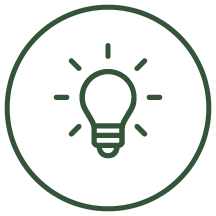
Learning & Adaptation
National
Local
National



PDF Download
Community quality control monitoring of latrines and boreholes in the Central North Region of Burkina Faso


Local








